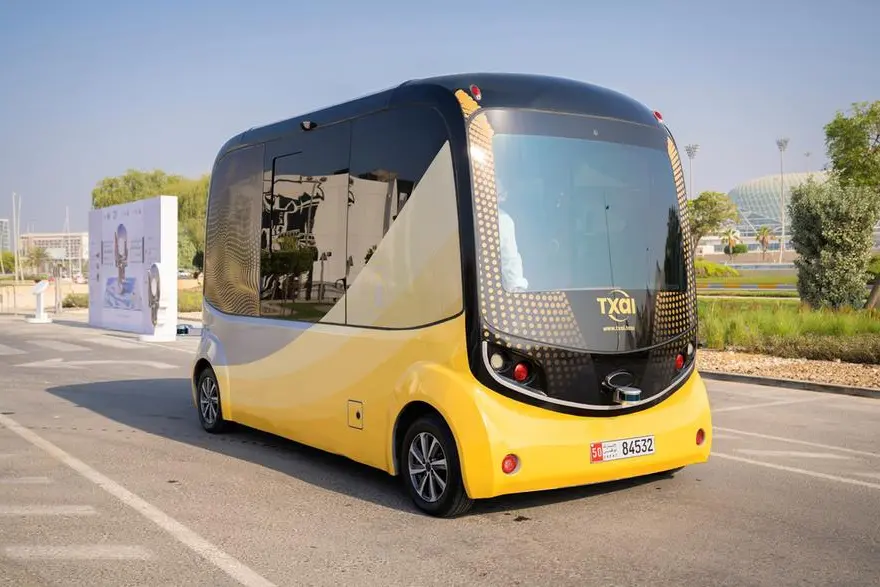PHOTO
Abu Dhabi:- In line with the vision of the wise leadership to make Abu Dhabi’s cities smarter and more sustainable, and as part of efforts to build a smart mobility system that supports development across various sectors and facilitates the mobility of residents and visitors to the emirate, the Integrated Transport Centre (ITC) of the Department of Municipalities and Transport (DMT) in Abu Dhabi has announced the launch of the second phase of operations of the Smart Mobility project on Yas and Saadiyat Islands.
The Smart Mobility Project is carried out in collaboration between the DMT, the ITC and Bayanat, an ADX listed public company with majority shareholding by G42 that specializes in AI-powered geospatial intelligence.
The Department of Municipalities and Transport confirmed that the project comes as part of Abu Dhabi’s smart mobility strategy to shift towards smart and sustainable transport solutions based on knowledge and innovation, and reinforces efforts to develop cities fit for the future and achieve sustainable development in the emirate. This is accomplished by working closely with strategic stakeholders in both government and private sectors to establish a smart, integrated and sustainable transport system, thereby supporting the aspirations of the wise leadership and their vision for the future.
The ITC explained that smart mobility sets the scene for a new stage of developing an environment-friendly and sustainable transport sector, which attracts more investment in the economy and tourism, especially as the transport sector is one of the most important drivers of growth, supporting businesses and adding a competitive advantage to economic activities in many other sectors.
Mr. Hasan Al Hosani, CEO of Bayanat, said, "When we think of the future, we think of how Bayanat can empower and enhance the public transport system with intelligent, innovative solutions. Autonomous vehicle technology will transform mobility in Abu Dhabi into something more efficient and attractive to the public. Through our strategic partnership with the Integrated Transport Centre, we are making intelligent, eco-friendly and safe transit accessible for all to serve the community better. This is just the beginning of what is to come as we continue to work to realize the potential of advanced technology in our everyday lives."
The smart mobility system on Yas Island and Saadiyat Island currently includes a fleet of 17 vehicles, including eight /TXAI/ autonomous vehicles, the first fully automated self-driving taxis in the UAE which were launched last November. It also includes 6 Mini Robobuses, in addition to 15 charging stations that were added to the Yas and Saadiyat Islands network. The system will also include 3 Automatic Rapid Transits (ART) in Yas Island, an improved rapid transport system operating without mass transport train system or rails. Customers can download and install the “TXAI” app to book and track their rides.
The self-driving taxi route on Saadiyat Island includes a number of new stations, namely Mamsha Saadiyat, Al Manarat, NYU Abu Dhabi, The St. Regis Hotel, Saadiyat Beach, Theodore Monod French International High School (Lycée Français International Théodore Monod), Jumeirah, Saadiyat Beach Residences and Louvre Museum Abu Dhabi. The route is 47.5 km long, and the service runs from 8:00 am to 8:00 pm throughout the week.
In its first phase, the Autonomous Rapid Transit (ART) system will provide services to Yas Island's main tourist attractions and commercial hubs.
Abu Dhabi's Smart Mobility Strategy aims to develop an efficient and sustainable transport sector, utilizing modern technology to serve the community by increasing the efficiency of the transport system and supporting the process of transition to smart autonomous transport that is more eco-friendly and sustainable, which, in turn, contributes to reducing transport costs, improves the quality of life in the Emirate of Abu Dhabi and enhances its global position as one of the best destinations to live, work and invest. It also supports efforts to achieve the country's sustainable development goals by reducing carbon emissions in line with the Paris Agreement and the UAE Net Zero 2050 strategic initiative.
-Ends-




















